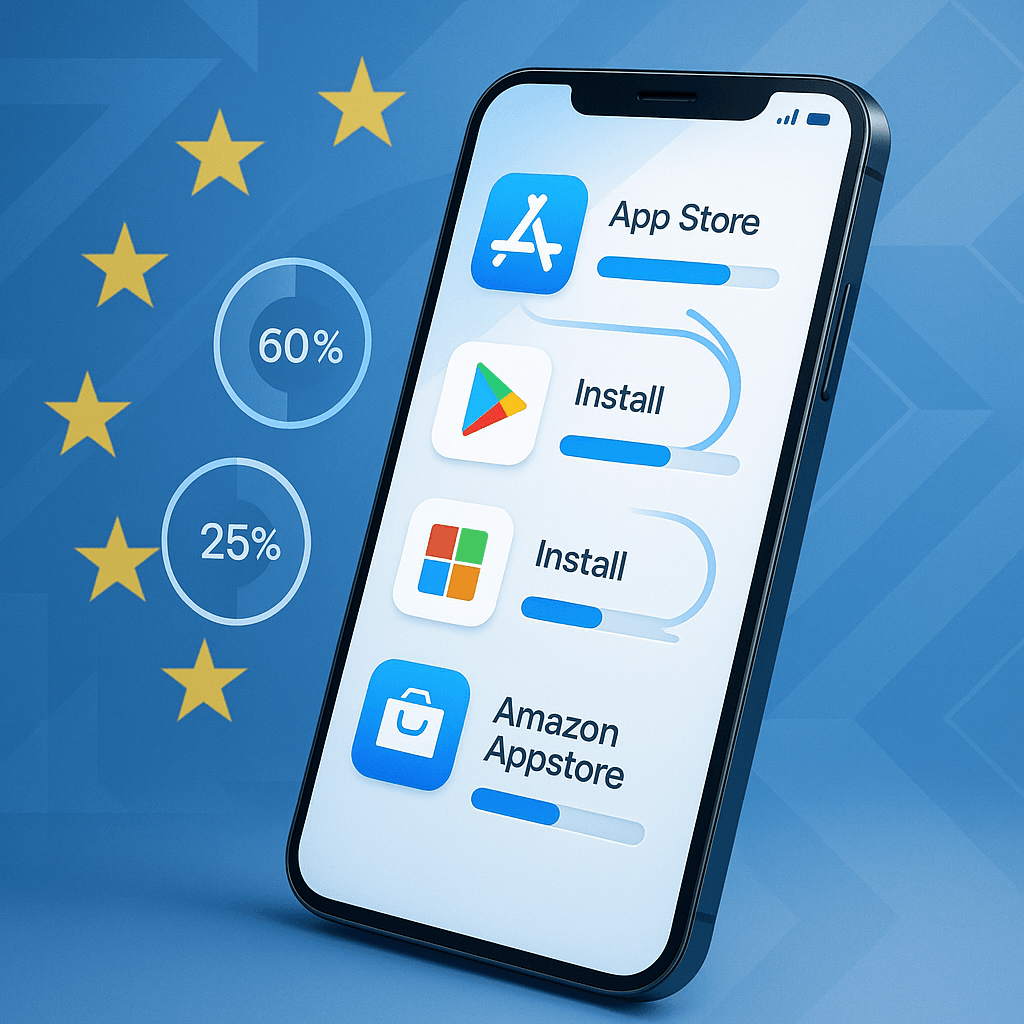Epic Games just delivered the data that proves Apple's latest iOS changes are working. The Fortnite maker says user drop-offs during app store installations plummeted 60% after Apple streamlined its process in iOS 18.6, slashing abandonment rates from 65% to just 25% - finally matching what Epic sees on desktop platforms.
Epic Games just handed Apple a rare public victory lap, and the numbers tell a story that regulatory watchers have been waiting months to hear. The Fortnite maker's latest data shows that Apple's streamlined installation process in iOS 18.6 has cut user drop-offs by a staggering 60%, proving that Europe's Digital Markets Act pressure is finally translating into real-world results.
The transformation is dramatic. Before iOS 18.6, a crushing 65% of users attempting to install Epic's game store on iPhones simply gave up midway through the process. Today, that figure sits at 25% - a conversion rate that finally mirrors what Epic sees on Windows and macOS, where users expect the freedom to install software from multiple sources.
This isn't just about Epic's bottom line. The data represents the first concrete evidence that Apple's initial DMA compliance strategy - what developers called "malicious compliance" - was actively sabotaging alternative app stores through what Epic termed "scare screens." These were multiple warning dialogs that painted third-party app installations as potentially dangerous, creating friction that Europe's regulators clearly viewed as anticompetitive.
The EU made its position crystal clear earlier this year, slapping Apple with a $568 million fine for failing to properly implement DMA requirements. That penalty appears to have been the wake-up call Apple needed. In July, the company released iOS 18.6 with a dramatically simplified installation flow that replaces multiple warning screens with a single, factual notice about potential feature differences.
"The new process includes only one screen showing users that they might miss some features, such as subscription management offered by the App Store," according to Apple's updated documentation. The screen also informs users that alternative app stores will handle their data directly - a straightforward disclosure rather than the fear-inducing warnings of the previous system.
But Epic isn't ready to declare victory. Despite acknowledging the improvement, the company continues to criticize what it sees as Apple's broader strategy to maintain App Store dominance through technical and financial barriers. Epic specifically targets Apple's "core technology fee," notarization requirements, and approval policies that it argues make alternative distribution deliberately cumbersome for developers.

